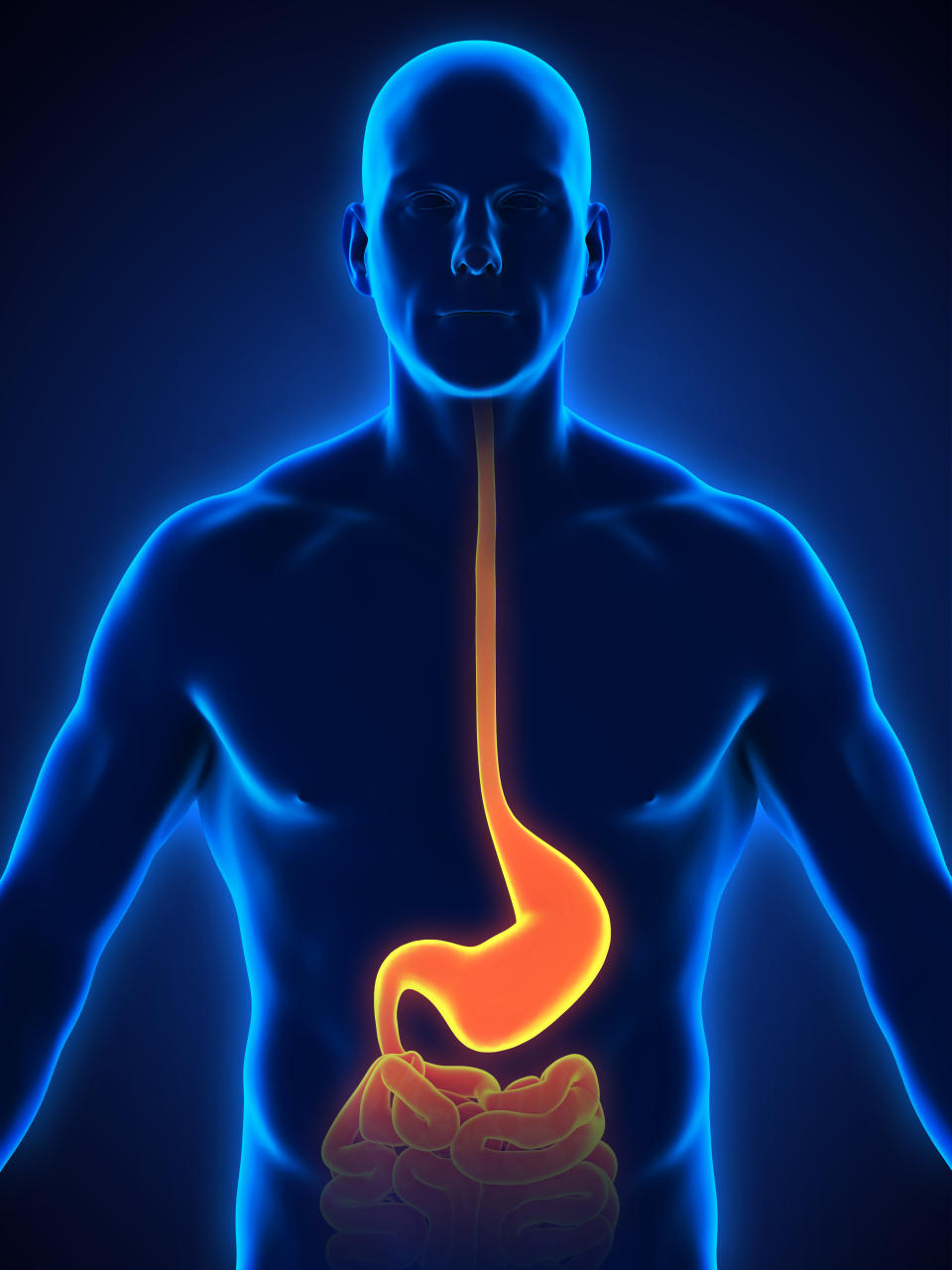Two in five adults have a gastro condition

Two in five adults worldwide suffer from some form of gastrointestinal condition, research suggests.
Scientists from the University of Gothenburg asked more than 73,000 people across 33 countries about gut issues, with more than half complaining of everything from heartburn to irritable bowel syndrome.
The team stressed the negative impact these conditions can have on a person’s quality of life, and called for more testing to help treat those suffering in silence.
Read more: Walnuts ‘boost heart health by feeding gut bacteria’
Gut conditions can strike anywhere in the gastrointestinal tract, leading to bloating, indigestion or constipation.
For some the discomfort is mild, while others suffer severe pain.
To learn more, the Gothenburg scientists had participants in 24 countries – including the US – complete an online survey.
Seven nations, including India and Indonesia, took part in-person interviews.
Results, which will be published in the journal Gastroenterology, revealed just how common gut disorders are.
“It’s striking how similar the findings are between countries,” said study author Dr Magnus Simrén.
“We can see some variations but, in general, these disorders are equally common whatever the country or continent.”
Read more: Crohn’s could one day be treated with 'freeze-dried faeces capsules'
Two in five (40%) of those taking part in the online survey reported symptoms, versus one in five (20%) of the participants who were interviewed.
“We don’t know why we’re seeing this difference, but one reason might be that people think it’s embarrassing to talk about stomach and bowel symptoms to someone sitting in front of them,” said Dr Simrén.
Women were up to 70% more likely to report symptoms than the male participants.
Perhaps unsurprisingly, participants who had a gastro condition reported going to their doctor more often than those without.

This comes after scientists from the University of Texas Southwestern, Dallas, found that our emotions may influence our risk of gastrointestinal infections.
Serotonin, the happiness hormone, is largely produced in the gut.
Results published in the journal Cell Host & Microbe show that when the dangerous bacterium E.coli was exposed to serotonin in the laboratory, its genetic expression broke down.
Read more: Woman’s bladder ‘brewed’ alcohol in bizarre condition
When mice were infected with a similar pathogen, those that produced higher levels of the hormone were less likely to have their gut colonised by the bacteria or become seriously ill.
The scientists plan to investigate whether a person’s serotonin levels can be manipulated to fight off infections like E.coli, which can be difficult to treat.


